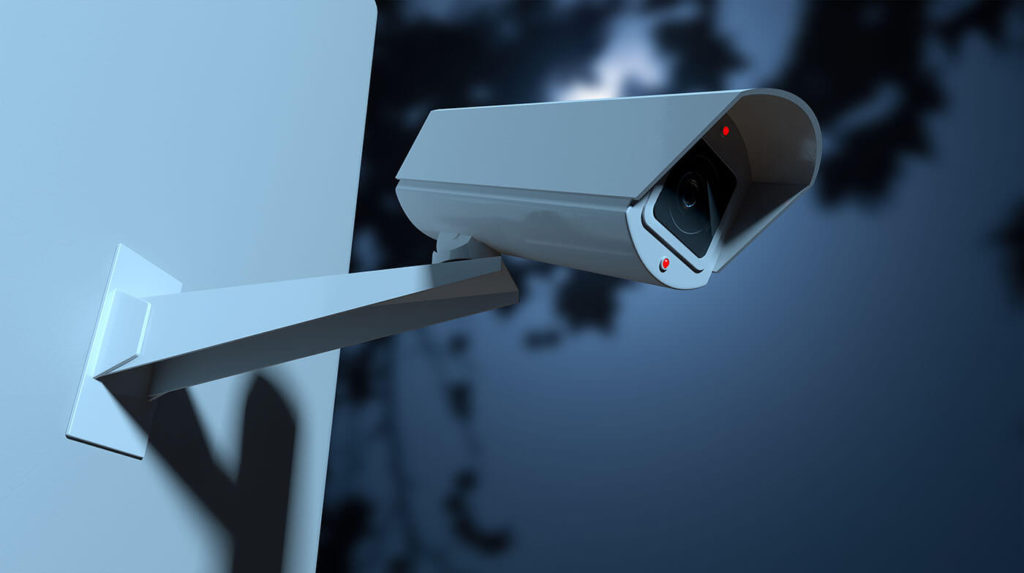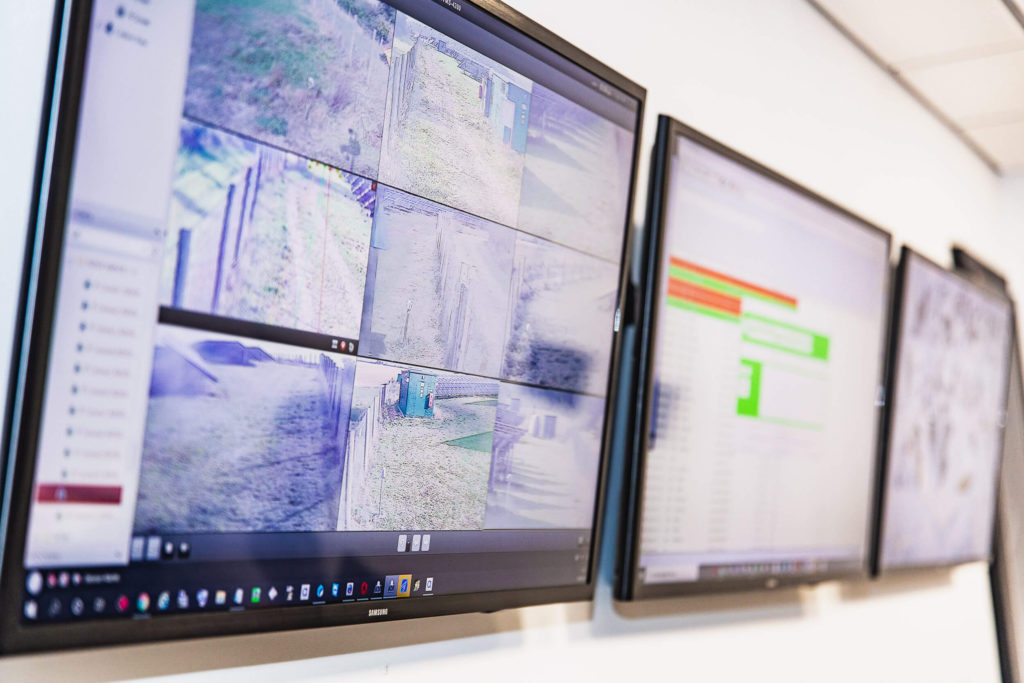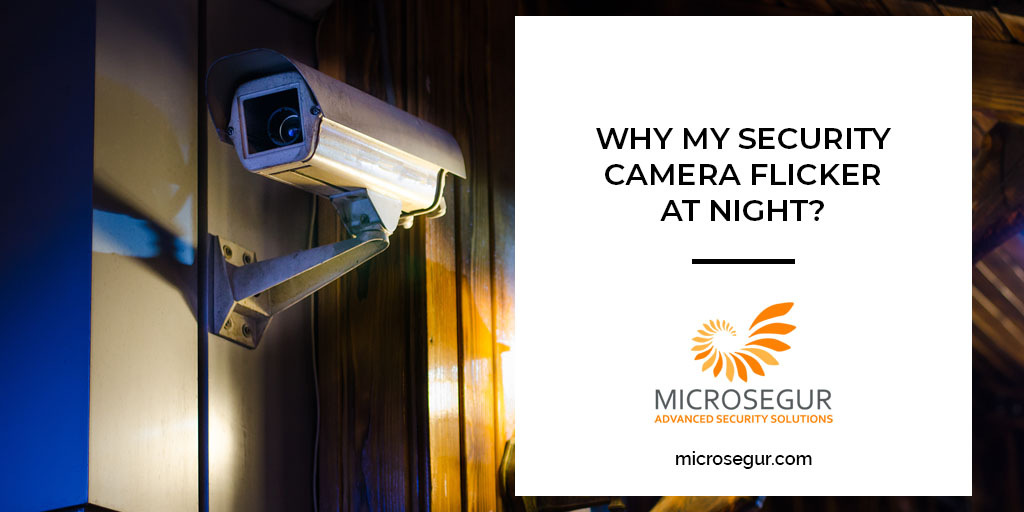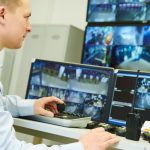This question has made you ask more than one occasion: Why does my security camera flicker at night? In this post we will try to answer that question. We will also give you some tips and useful information for the correct operation of your security cameras.
Some reasons to know why my security camera blinks at night are:
Light sources closed to the camera
Light sources are one of the most common reasons that security cameras flicker at night. The cameras are equipped with an infrared system that is activated in low light conditions such as when night falls. In this way you can capture images in poor lighting conditions.
But if there are light sources close to the camera, it can destabilize the camera’s infrared system, which will start to flicker because the light source causes the camera to frequently turn on and off its infrared. In the alarm center this is perceived as flashes.
Problems with the power supply
Sometimes the flickering can be due to a 12 volt transformer failure. The cameras normally operate at 12 volts, so they are equipped with adapters to pass the supply input voltage to that voltage. These transformers deteriorate over time and the proper infrared voltage does not reach the camera. That power issue causes intermittent on and off that looks like a blink.
Just as the 12-volt transformer fails, there may also be a problem with the camera’s power supply. The power supply must be dedicated exclusively to that camera. If not, it may happen that the correct power supply voltage is not reached. That will also cause an intermittent flickering.
Poor condition of materials
We cannot ignore that the failure is caused by deterioration of the cables or by connections in poor condition. In many occasions, the cables can suffer deterioration due to the passage of time and inclement weather, also due to accidental cuts. This causes the continuity of the electricity supply to be inadequate, which will end up producing the famous flickers of the surveillance camera.
We also have to check the connectors that break down or loosen over time, also causing that flicker that we are talking about.

The importance of night focus
If we adjust the focus of a camera at night we have the certainty that it will look good during the day. It may be that the cost of working at night is greater in time (the technician will not take the same as in the day) and in budget (you have to pay extra overnight), but in the long term it will be much better. On the other hand, if we focus during the day, we run the risk that the image is out of focus at night. This fact is due to the opening of the diaphragm of the camera and the depth of field.
Tipos de cámaras de vigilancia exterior
There are different types of outdoor security cameras. In principle, surveillance cameras could be classified into three groups:
Thermal Cameras
Thermal cameras capture heat radiation emitted by bodies and with it form an image. These cameras are ideal for use in low or no light conditions. Not needing lighting, they are ideal for discreet surveillance. Thanks to this thermal image, the guards can sufficiently identify whether it is a person or an animal, and prevent possible unauthorized entry within the security perimeter.
Conventional cameras
Conventional video security cameras capture the image using a video lens and normal photography. They are the most frequent cameras. The image is more realistic and defined than in thermal cameras, since we see what the lens captures, without any process of artificial image formation.
Conventional cameras can be of different resolutions and ranges, depending on the quality of the lens.
PTZ Cameras
PTZ dome cameras are hemispherical shaped cameras that are normally installed on the ceiling, but can also be mounted on a wall. These cameras can rotate on themselves, both vertically and horizontally. They are equipped with a zoom that allows to zoom in or zoom out the captured image.
PTZ dome cameras can have built-in sensors to detect heat sources or sounds or movements.

Maintenance of security systems
It is very important to develop a correct maintenance of the security system. The maintenance will be preventive or corrective. In preventive maintenance, a check is made of all the elements that make up the security installation (cameras, connections, wiring) to verify that everything works well.
Any faults that are detected must be corrected. If a camera fails, a security breach occurs that makes the integrity of our security system vulnerable. In the corrective maintenance phase, all items that do not function properly are repaired or replaced.
In large security installations, equipment maintenance is as important as installation. Over time there will be elements that stop working properly. Getting ahead of those bugs or correcting them quickly is vital to the security of any business.

Alarm verification service
Until now we have talked about one of the characteristic failures of a security camera such as the flickering that occurs at night, and we have insisted on the importance of proper maintenance of the facilities. Now it is time to mention another fundamental pillar for any perimeter surveillance system: the alarm receiving center.
A security installation made up of dozens of cameras and sensors is useless if we do not have a control and command center that receives all the possible signals that they can transmit. This is the function of an alarm verification service.
The alarms are centralized in a physical space and are attended by specialized personnel who can correctly interpret what the camera or sensor is transmitting. The alarms can be real, or false alarms caused by technical failures, by wind or by animals.
In the central office, the alerts received are prioritized and the real alarms are acted on first. False alarms are left for a later time, and the correction of detected technical failures is planned.
To have an effective security system it is necessary to have a comprehensive planning that covers several phases, all of them crucial: design, installation, maintenance and verification service of the alarms received. Any failure that occurs in any of these phases can cause a significant security breach and make our company vulnerable.
We hope we have resolved your doubts about the question: Why does my security camera blink at night?



